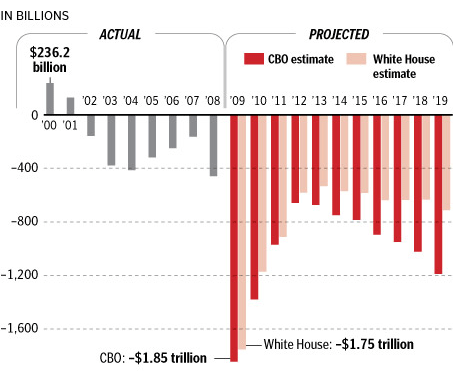I'm no fan of President Obama. But I believe I have good reason for disliking him.
For instance, take the appointment of Dr. Don Berwick to head the Centers for Medicare and Medicaid Services (CMS). Dr. Berwick was nominated for the post just a few months ago, back in April. Yesterday, the President decided to bypass the Senate entirely and just give him the job through a recess appointment. Why? Well, the White House Communications Director made the President's position quite clear:
Many Republicans in Congress have made it clear in recent weeks that they were going to stall the nomination as long as they could, solely to score political points.
Yes, it was all the fault of those evil and nasty Senate Republicans, the source of all evil in this country. Now, that may very well be true. Most Senate Republicans are rather spineless, greedy, and craven. But, as the Senate Republican Policy Committee pointed out, they never even got a chance to stall, prevaricate, or vacillate.
In this context, it's worth pointing out that Democrats never called a hearing on Dr. Berwick's nomination. Republicans have no ability to "stall the nomination" in committee - and nothing prevented the majority from calling a hearing, or voting to report the nomination out of committee. They chose to do neither.
In fact, they were quite eager to have a conversation about the importance of the post and the merits of the nominee.
Second, CMS is one of the largest agencies in the federal government. This fiscal year, it will disburse $803 billion in benefits - making CMS larger than all but 15 of the world's economies. And of course, its responsibilities will only grow under the health care law, as the CMS Administrator will be responsible for implementing more than $500 billion in savings from the Medicare program, and an unprecedented expansion of Medicaid as well. Yet both Republicans and Democrats will be denied any opportunity to question Dr. Berwick about how he plans to implement the law, and manage CMS, because the President decided to make a recess appointment before the confirmation process began in earnest.
This recess appointment is more about our President's moral cowardice than it is about the Republican's moral cowardice. Dr. Berwick, together with the President, is a proponent of some ideas that a majority of Americans don't like.
Dr. Donald Berwick has been awaiting a nomination hearing in Congress since Mr. Obama tapped him for the post in April. Since then, Republicans have attacked the Harvard professor and health policy expert for making favorable statements about Britain's government-run health system and for endorsing certain health spending cuts.
Democrats have been concerned that Dr. Berwick's confirmation hearing would be a bruising battle. Republicans indicated they would use the hearing to revive their arguments that the health-overhaul law will lead to a government takeover of the health system.
ABC reported that Republicans were rather looking forward to this nominating hearing.
But Republicans were not delaying or stalling Berwick's nomination.
Indeed, they were eager for his hearing, hoping to assail Berwick's past statements about health care rationing and his praise for the British health care system.
"The nomination hasn't been held up by Republicans in Congress and to say otherwise is misleading," said Sen. Chuck Grassley, R-Iowa, the ranking Republican on the Senate Finance Committee, which would have held Berwick's hearing.
Grassley said that he "requested that a hearing take place two weeks ago, before this recess."
Berwick's nomination was sent to the Senate in April, and his hearing had not been scheduled because he was participating in the "standard vetting process," a Democratic aide on the Senate Finance Committee told ABC News.
But speaking not for attribution, Democratic officials say that neither Senate Majority Leader Harry Reid, D-Nev., nor Sen. Max Baucus, D-Mont., the chair of the Senate Finance Committee, were eager for an ugly confirmation fight four months before the midterm elections.
Even the New York Times managed to notice that something wasn't quite right.
The recess appointment was somewhat unusual because the Senate is in recess for less than two weeks and senators were still waiting for Dr. Berwick to submit responses to some of their requests for information. No confirmation hearing has been held or scheduled.
The holding and scheduling of confirmation hearings is at the discreation of the Senate majority. Democrats have a 59-41 advantage in the Senate. If they truly wanted to, they would have no problem scheduling a hearing, voting the nominee out of committee and then approving the nominee with a full Senate vote. Senate Republicans would have had little real opportunity to stop the process.
Instead, the President and Senate leadership ignored their Constitutional duties out of fear of the American public. They were afraid of political fallout from letting the American public watch the hearings and see what their nominee really believed -- what the President really believes. This isn't a mark of a great leader. It's the mark of a political coward. And it's just one of the many reasons why I don't like President Obama.
